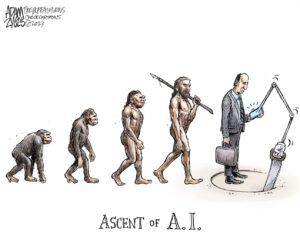Ad-Blocking Software Is No. 1 Paid Mobile App in U.S.
Less than a day after the launch of Apple’s new operating system, software that allows mobile users to block advertisements shot to the top of apps charts worldwide. Blake Patterson / CC BY 2.0
Blake Patterson / CC BY 2.0
Less than a day after the launch of Apple’s new iOS 9 operating system, software that allows mobile users to block advertisements shot to the top of apps charts worldwide.
In the U.K. on Thursday, the app Purify ranked No. 11, while Peace reached No. 12. In the U.S., Purify hit No. 5, while Peace became the top paid app in the country.
The Guardian reports:
The rise of adblocking has proved concerning for web publishers, many of whom rely largely or exclusively on display advertising for revenue. In Germany, four major broadcasters have now tried and failed to win in court against Eyeo, which makes one of the largest adblockers: AdBlock Plus. Publishers argue that blocking display ads hurts their business, and is unethical because it allows users to view content without paying the implied price of an ad impression. …
But Peace is Arment’s first app where ad blocking is the primary focus, and he has addressed the ethical concerns of such a move a number of times. “We shouldn’t feel guilty about this,” he said in the app’s launch announcement. “The ‘implied contract’ theory that we’ve agreed to view ads in exchange for free content is void because we can’t review the terms first — as soon as we follow a link, our browsers load, execute, transfer, and track everything embedded by the publisher. Our data, battery life, time, and privacy are taken by a blank check with no recourse.” …
But others argue that the rise of adblocking will instead have a counterproductive effect, driving publishers to platforms where adverts – and tracking code – cannot be blocked. Facebook and Apple News are two such platforms, as Casey Johnston, a technology journalist, writes: “Driving publishers to Facebook will not get rid of invasive trackers; it’s only declaring allegiance to the most comprehensive one, which has bought data from brokers with hundreds of millions of consumer profiles, and whose privacy policy doesn’t prevent it from selling users’ data, as long as it is anonymised (a process widely considered insufficient for privacy protection).”
If adblockers do continue to prove popular with users, they could also be a major weapon in Apple’s arsenal against its key competitor, Google. Unlike Apple, which makes the majority of its revenue from hardware sales, Google’s income still relies largely on web display advertising. As such, it is unlikely to ever encourage the use of adblocking to the same extent as Apple, and has previously banned adblockers from the Android app store. Currently, however, Android users can block ads, but only if they install a specially downloaded browser.
Read more here.
— Posted by Alexander Reed Kelly.
Your support matters…Independent journalism is under threat and overshadowed by heavily funded mainstream media.
You can help level the playing field. Become a member.
Your tax-deductible contribution keeps us digging beneath the headlines to give you thought-provoking, investigative reporting and analysis that unearths what's really happening- without compromise.
Give today to support our courageous, independent journalists.






You need to be a supporter to comment.
There are currently no responses to this article.
Be the first to respond.